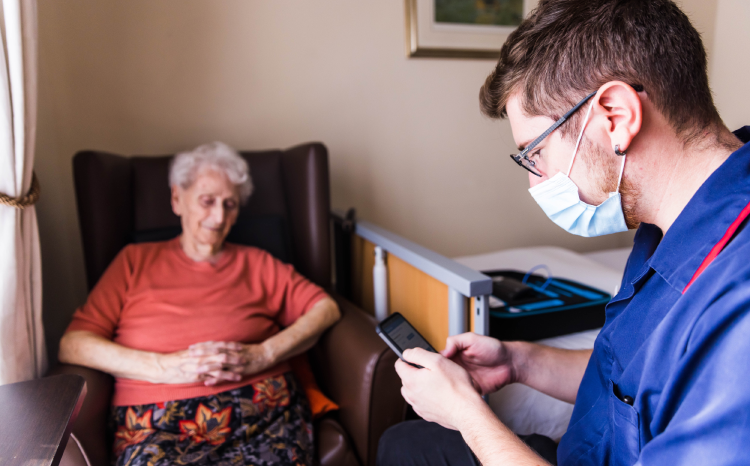Virtual wards and AI form part of £160m NHSE funding boost
- 13 May 2021

Virtual wards and artificial intelligence in GP clinics will form part of a £160m cash injection from NHS England to help the health service recover from Covid.
The funding will be split between ‘elective accelerators’ which will be expected to implement and evaluate innovative ways to boost the number of elective surgeries they carry out. Twelve regions and five specialist children’s hospitals will be designated elected accelerators.
Over the next three months their patients are set to benefit from trials of virtual wards and home assessments, 3D eye scanners, at-home antibiotic kits, AI in GP surgeries and ‘Super Saturday’ clinics of multi-disciplinary teams joining forces at the weekend to offer more specialist appointments.
Devon Integrated Care System (ICS) will use the funding to repurpose the Exeter Nightingale to perform diagnostic tests, with patients in the south west also set to benefit from the extension of virtual wards so patients can receive medical support from the comfort of their home.
It is hoped the use of virtual wards will free up beds so more patients can be admitted to receive elective care.
Lancashire and South Cumbria ICS is using AI to prioritise and identify the right level of care and support needed for patients on the waiting list.
While North London Partners Integrated Care System (ICS) is set to extend NHS operating hours, as well as using the independent sector, and offer patients care in newly-designed surgical hubs.
Other initiatives include high-volume cataract service, one stop testing facilities, greater access to specialist advice for GPs and pop-up clinics so patients can be seen and discharged closer to home, according to a statement from NHS England.
Amanda Pritchard, NHS Chief Operating Officer, said: “With Covid cases in hospitals now significantly reducing thanks to the extraordinary success of the NHS vaccination programme, our focus is now on rapidly recovering routine services.
“Early figures show local teams are already well ahead of schedule, but we want to go further, faster which is why we are investing £160 million to find new ways to tackle waiting lists.
“The additional support announced today will help us create a blueprint for continuing that progress over summer and beyond, in a way that doesn’t heap extra pressure on staff, so that as many people as possible benefit from the world-class care the NHS provides.”
Professor Helen Stokes-Lampard, chair of the Academy of Medical Royal Colleges, added: “The pandemic has been truly awful for all of us. But as the pressure begins to ease and we start to build back our NHS we need to capture some of the good that came out of the last 12 months – be that through better use of technology, streamlined appointment booking, more efficient ways of working – the list is almost endless.
“This investment is incredibly welcome and will be very well received, not least because it allows our brilliant staff to map out a way forward with better systems and services that will genuinely improve the quality of care and make life easier for staff.”




